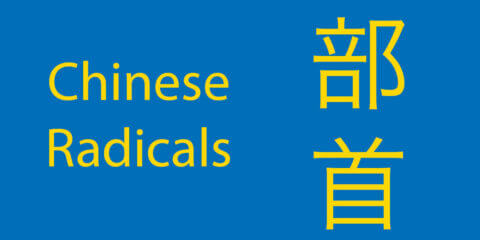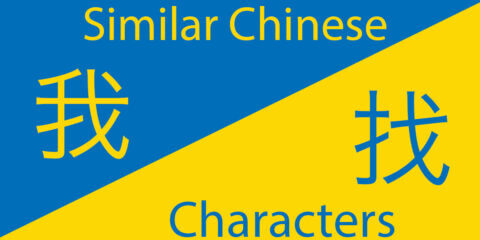Check Out These 35 English Words That Are Borrowed From Chinese

Did you know that there are actually many English words that are borrowed from Chinese?
There are some which are quite obvious like fengshui or kung fu, but did you know that the words ketchup and brainwash actually come from Chinese!?
Yes you may actually know some Chinese words without even realising it!
However, not all of these words come from Mandarin Chinese but also from Cantonese Chinese and other Chinese dialects such as Hokkien.
We’ve compiled a list of some of the most interesting examples, some of them may really surprise you.
English Words Borrowed from Chinese || Food and Drink
English Words Borrowed from Chinese || Phrases
English Words Borrowed from Chinese || Objects and Animals
English Words Borrowed from Chinese || Culture
English Words Borrowed from Chinese || Miscellaneous
English Words Borrowed From Chinese | Food and Drink
Of course it makes sense that Chinese food new to the west would borrow their English name from the original Chinese.
If you’re already familiar with some popular Chinese dishes and Chinese ingredients then many of these words should already be familiar to you.
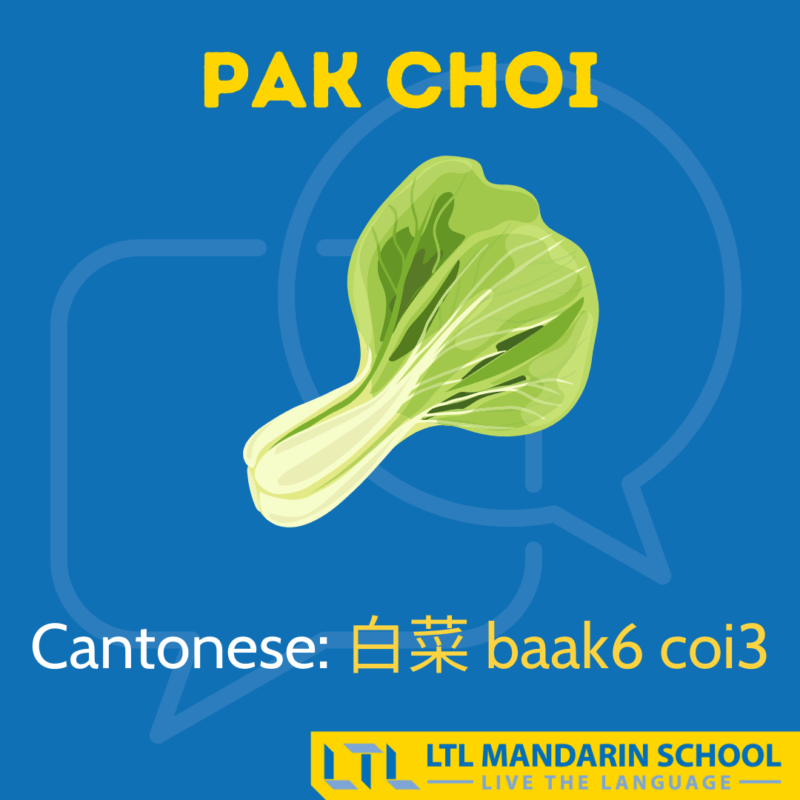
Pak Choi
Pak choi or bok choy for those Americans out there is a common Chinese vegetable that you’ll commonly see included in various stir-fry dishes.
This word comes from the Cantonese: 白菜 baak6 coi3, which in Mandarin is 白菜 báicài and literally means “white vegetable”.
In northern mainland China they actually normally call pak choi 小白菜 xiǎo báicài (little white vegetable) to distinguish it from the nappa cabbage which is 大白菜 dà báicài (big white vegetable).
Tofu
A staple in Chinese cooking we have tofu.
This word has a Sino-Japanese origin.
It comes from the Japanese 豆腐 tōfu, which actually comes from the Mandarin 豆腐 dòufu.
Ginseng
The herbal root ginseng is used in tea and as a natural medicine.
The name comes from the Hokkien 人參 jîn sim (Mandarin 人参 rénshēn).
This literally means “human root” and is named after the shape of ginseng which kind of resembles a person.

Ketchup
Yes as we mentioned earlier, it is believed that this word is actually borrowed from Chinese!
There are two theories about where the term originated, one is that it came from the Hokkien word kê-tsiap which actually refers to a fish sauce.
It is thought that this fish sauce over time then developed into what we know as ketchup today, with tomatoes being introduced to the recipe in the 19th century.
The other theory is that it came from the Cantonese 茄汁 ke2 jap1 (Mandarin 茄汁 qié zhī) which means “tomato juice”, however many historians dispute this theory.
Hoisin (sauce)
This popular Chinese sauce takes its name from the Cantonese 海鮮 hoi2 sin1 (Mandarin 海鲜 hǎixiān) which literally means “seafood”.
The origins for the Chinese name of this sauce remain a bit of a mystery as it isn’t eaten with seafood, nor is it made from seafood.
FUN FACT | Hoisin sauce isn’t actually the condiment traditionally served with Beijing roast duck, check out our sauces blog to find out more about this.
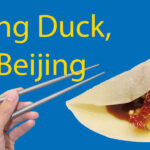
Where to Eat Beijing Duck in Beijing in 2022? 3 Must Visit Restaurants
When you travel to Beijing there are somethings you just have to do – the Great Wall, the Forbidden City, the hutongs and feast out on Beijing Duck!
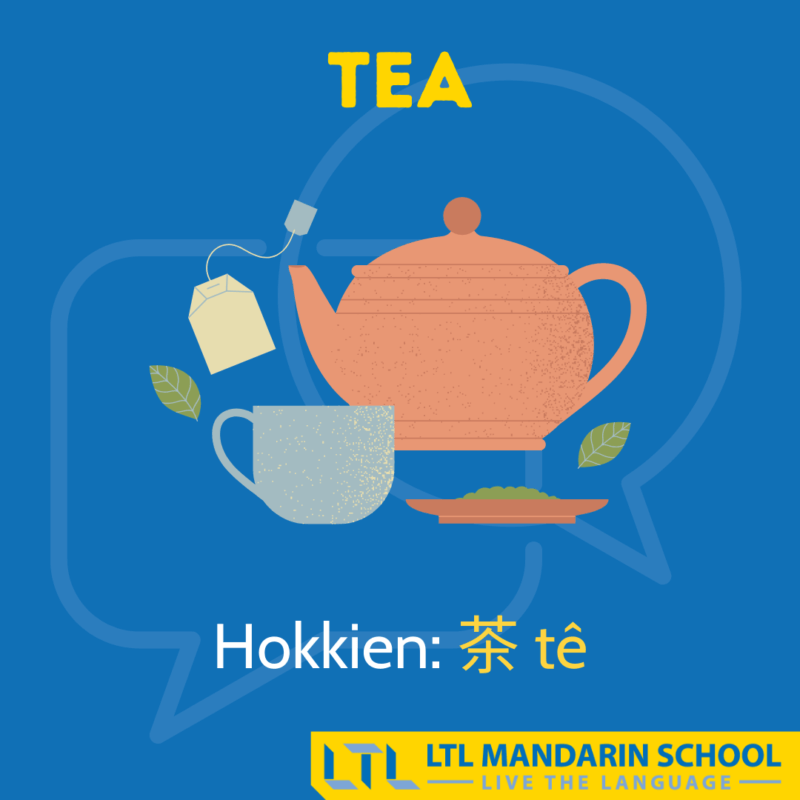
Tea
Although a vital part of British culture, both tea and of course the word for tea come from China.
The term tea actually comes from the Hokkien 茶 tê and was introduced into the English language in the 17th century.
However, prior to this the word “cha” was actually used instead of tea, coming from the Cantonese 茶 cha4 (Mandarin 茶 chá) via Portuguese traders travelling from Macao.
At some point tea became the preferred name and nowadays “char” is just used as a colloquial term for tea in Britain.
Dishes
Next up we have a few popular Chinese dishes whose names have become part of the English language.
Chow Mein
Now who doesn’t love a good chow mein?
Well the origin of this word is pretty straight forward, it comes from the Taishanese 炒麵 chau2 mein6 (Mandarin 炒面 chǎomiàn) meaning fried noodles.
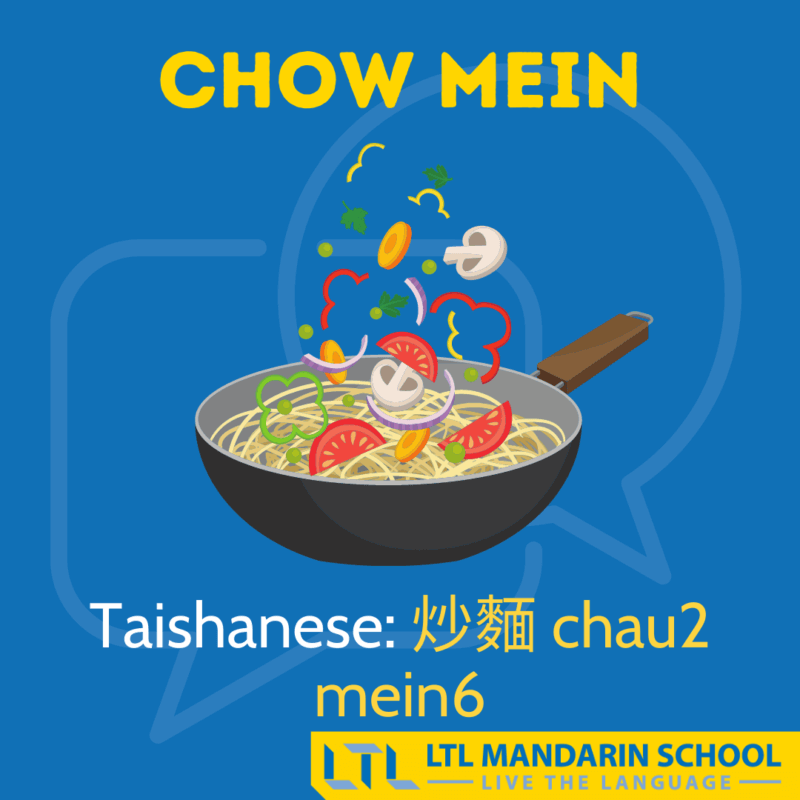
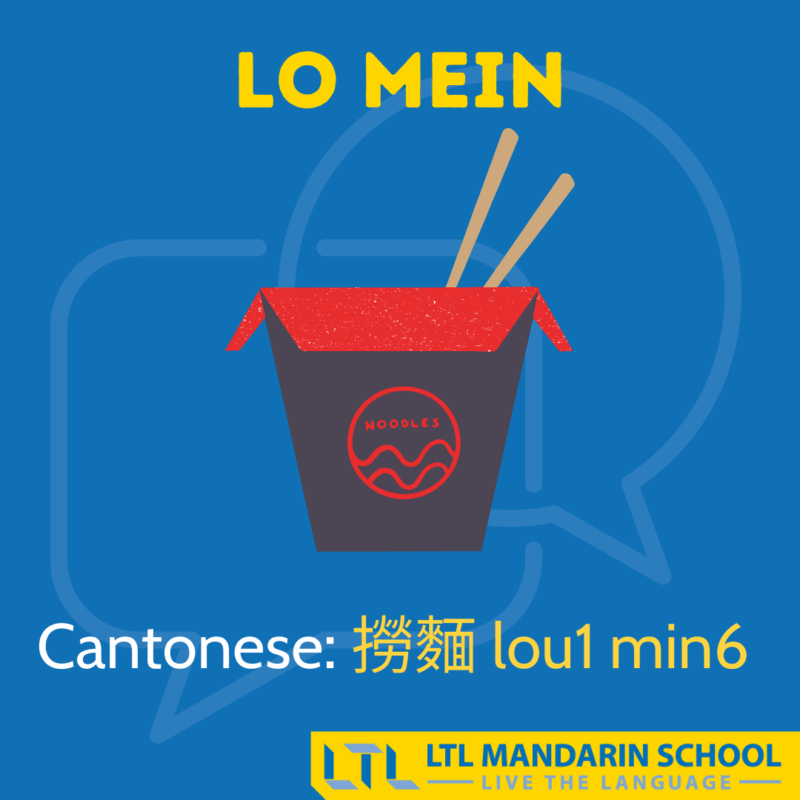
Lo Mein
Following on from chow mein we have another popular noodle dish: lo mein.
This word comes from the Cantonese 撈麵 lou1 min6 (Mandarin 捞面 lāo miàn) which means “stirred noodles”.
However it’s important to note that although the name is the same, an American Chinese lo mein is a very different dish from the original Cantonese one. In China lo mein can be seen as a dry noodle soup, with the soup and other ingredients served one the side.
So if you’re ever ordering lo mein in China, don’t be expecting the dish you get from your local Chinese takeout!
Chop Suey
Another American Chinese dish, chop suey takes its name from the Cantonese 雜碎 jaap6 seui3 (Mandarin 杂碎 zá suì) meaning “mixed pieces”.
Although this is where the name comes from, this dish is actually thought to be invented by Chinese Americans.
But some people do believe it originated from a similar dish popular in Taishan that was then brought over by Chinese immigrants.
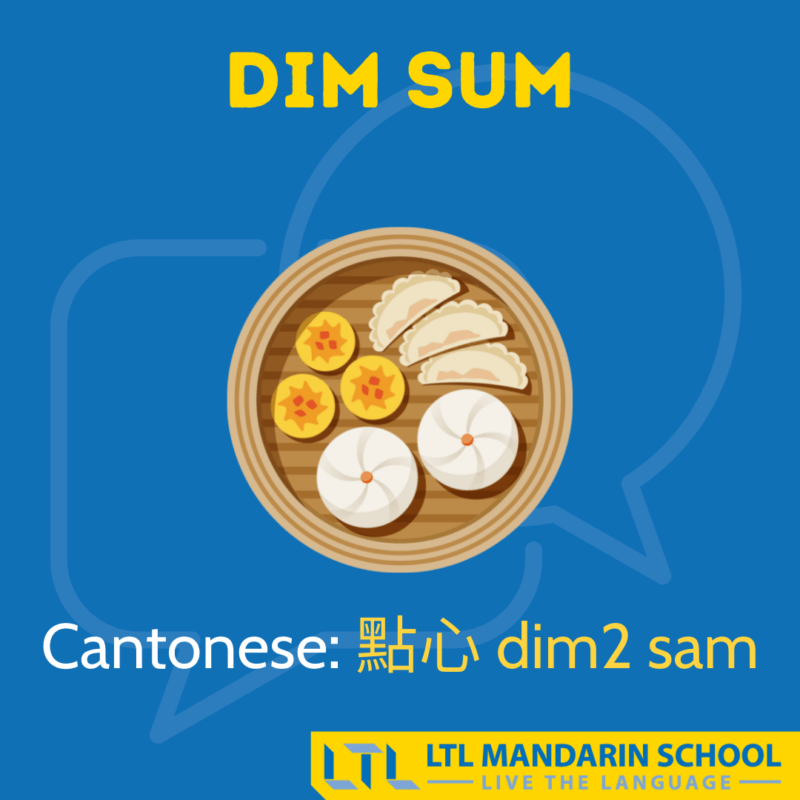
Dim Sum
Last on our list of English words borrowed from the names of Chinese dishes we have the the all important dim sum!
This word comes from the Cantonese 點心 dim2 sam1 (Mandarin 点心 diǎnxīn) which means “touching heart”.
It’s actually unknown where the Chinese name for dim sum originated from, with there being a few different theories.
Within the category of dim sum, there a couple of popular dim sum dishes that have also made their way into the English language:
| English | Origin of Word | Mandarin | Meaning |
|---|---|---|---|
| Char siu | Cantonese 叉燒 cha1 siu1 | 叉燒 chāshāo | Cantonese style of barbecued pork |
| Har gow | Cantonese 蝦餃 ha1 gaau2 | 虾饺 xiājiǎo | Shrimp dumplings |
| Siu mai | Cantonese 燒賣 siu1 maai2 | 烧卖 shāomài | Pork dumplings |
| Wonton | Cantonese 雲吞 wan4 tan1 | 馄饨 húntun | Type of Chinese dumpling |
English Words Borrowed From Chinese | Phrases
It may surprise you that some of these common English phrases actually come from Chinese, so let’s have a look at what they are.

Chop Chop
Have you ever been in a hurry and told someone to get a move on by saying chop chop?
Well next time you use this phrase you will know that it originates from the Cantonese 速速 chuk1 chuk1 (Mandarin 速速 sù sù).
It is thought that chop chop is a pidgin English version of 速速 chuk1 chuk1, which has a similar meaning to 快快 kuài kuài in Mandarin, and is used to tell someone to hurry up.
Chow
Perhaps more common in American English than British, we have the word chow.
We already saw how chow mein derived from the Chinese for fried noodles and here chow is the same coming from the Cantonese 炒 chaau2 (Mandarin 炒 chǎo) meaning stir fry.
Chow was originally pidgin English and was first used in the 1800s by Chinese labourers who were developing the railroad in California.
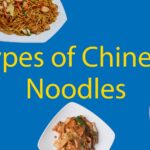
Types of Chinese Noodles 🍜 A Guide to 11 Varieties
There are many types of Chinese Noodle. Probably more than you think. So here’s our guide to the very best and the ones you have to try when in China.
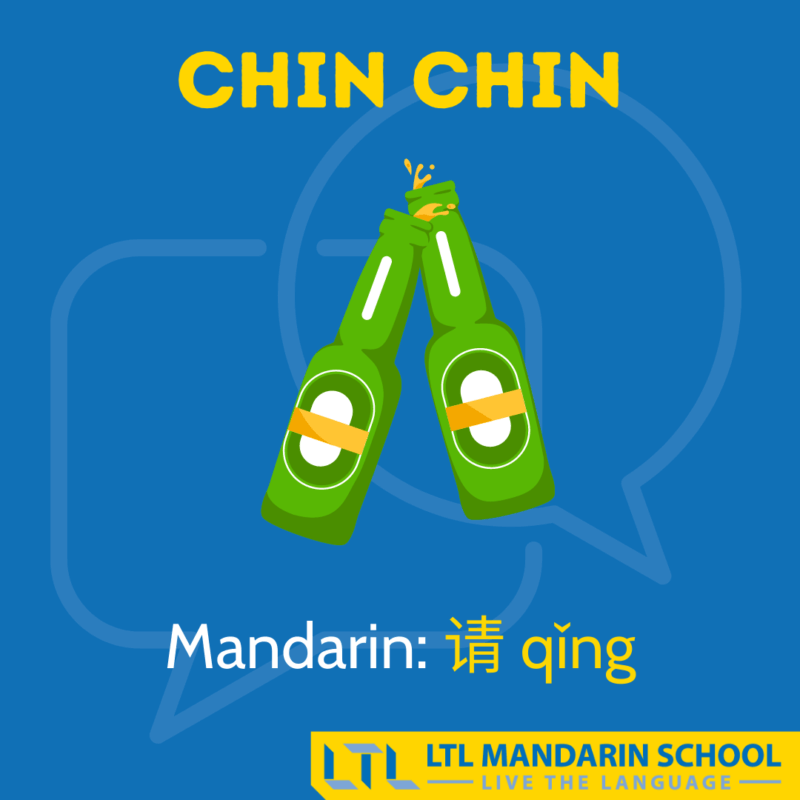
Chin Chin
A word which you’re not going to hear very often anymore is chin chin, another way to say cheers or to wish someone well when drinking.
It comes from the Mandarin 请 qǐng, meaning “please” or “to invite”.
In China you’re more likely to hear cries of 干杯 gānbēi when drinking, however occasionally people will also invite you to do a cheers with them by saying 请 qǐng as well.
Interestingly in certain parts of the world “chin chin” is still commonly used when clinking beer bottles or tapping those wine glasses.
Italy is a prime example, “cin cin” remains the most popular word for “cheers”.
Gung-ho
Not a very commonly used word in everyday English, unless you’re a big fan of the Beijing pizza chain Gung-ho Pizza we have the term gung-ho.
In English it means “overly enthusiastic or energetic” and comes from the Mandarin 工合 gōnghé which literally means “work together”.
The phrase was picked up by United States Marine Corps Major Evans Carlson who wanted to encourage his soldiers to work together like Chinese soldiers did, saying that their motto was 工合 gōnghé.
English Words Borrowed From Chinese | Objects and Animals
Objects
Next on our list of English words borrowed from Chinese we have some different Chinese objects.
To start off we’re going to have a look at some traditional Chinese clothes.
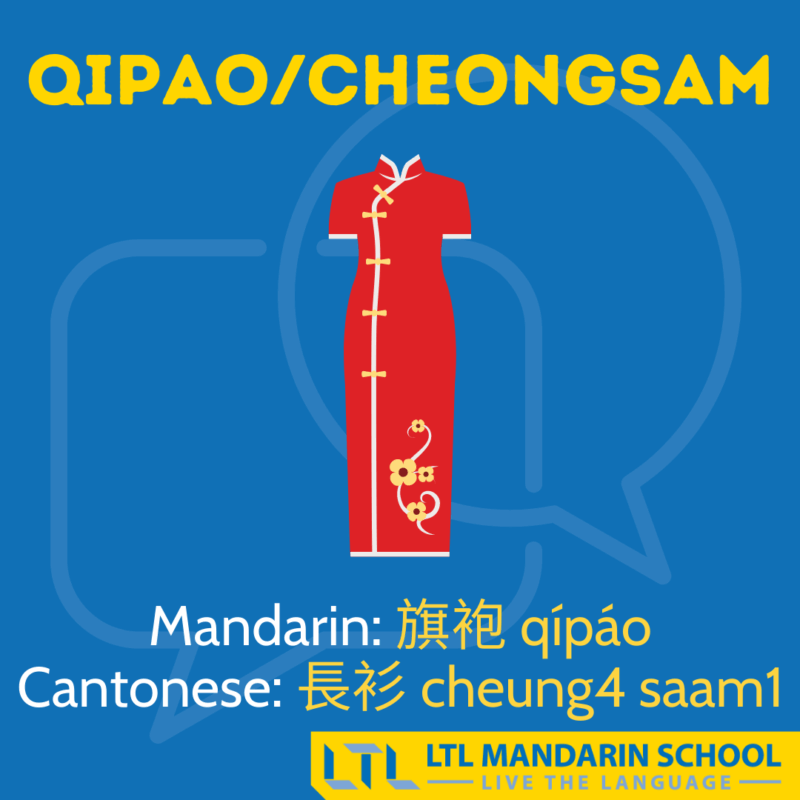
Qipao/cheongsam
One of the most iconic traditional Chinese dresses is the qipao also called a cheongsam.
Qipao comes directly from the Mandarin 旗袍 qípáo, 旗 qí used to be a term for the Manchu people and 袍 means “gown”.
Cheongsam then comes from the Cantonese 長衫 cheung4 saam1 which means “long gown”.
In English cheongsam and qipao can be used interchangeably, however in Mandarin 长衫 chángshān refers exclusively to a male garment.
Hanfu
Another common traditional Chinese garment which was worn by the Han Chinese.
Like qipao, this word just comes directly from the Mandarin 汉服 hànfú.

Wok
It should come as no surprise that this essential Chinese cooking utensil borrows its name from Chinese .
It comes straight from the Cantonese 鑊 wok6 which in Mandarin is 镬 huò.
However, in Mandarin speaking regions the character 锅 (guō) is actually used to refer to woks and pans.
锅 means pot and is one part of one of China’s most famous cuisines – hotpot 火锅 (literally fire pot).
Chopsticks
As we saw earlier the phrase chop chop comes from the Chinese for quickly and it’s thought that the name for chopsticks has the same origin.
The Chinese for chopsticks is 筷子 kuàizi and the first character has the same pronunciation as 快 kuài meaning quick.
Animals
In this section we’re going to look at animal names that are borrowed from Chinese, which are actually all different types of dog breeds.
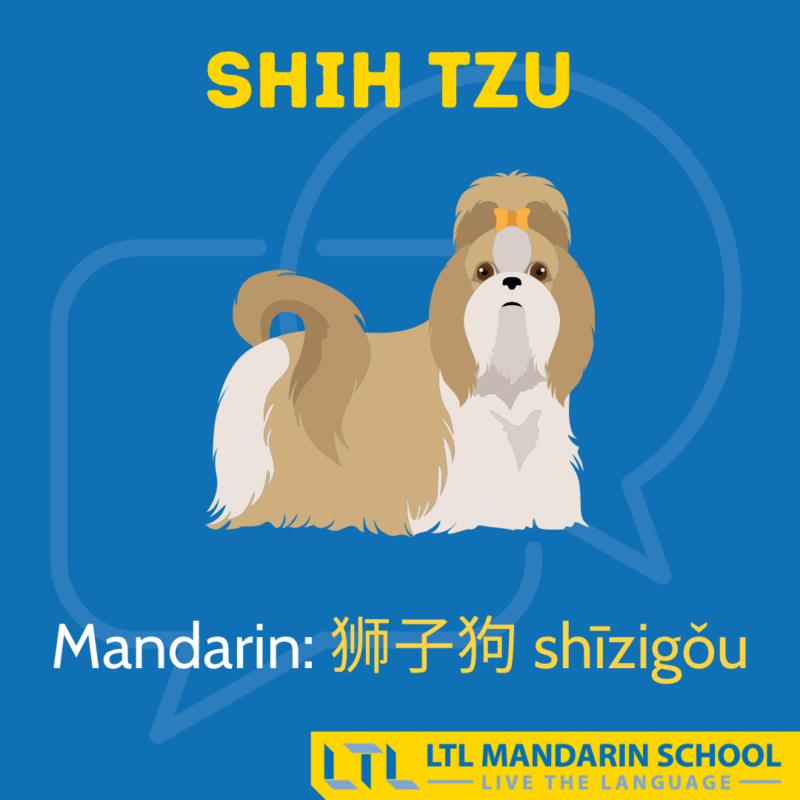
Shih Tzu
The name shih tzu comes directly from the Mandarin 狮子狗 shīzigǒu which means “lion dog” in Chinese.
Shi tzu is the Wade-Giles romanization of the characters.
These were termed lion dogs in China because they were bred to look like mythical Chinese lions.
However, in modern day China 狮子狗 shīzigǒu actually refers to Pekinese dogs and shih tzu are called 西施犬 xīshī quǎn instead.

Shar Pei
Just like shih tzu, Shar Pei is another direct translation and comes from the Cantonese 沙皮 sa1 pei4 (Mandarin 沙皮 shā pí).
This literally translates to “sand skin” and refers to the brown, wrinkly skin that Shar Pei dogs have.
Super cute, right?!
Chow Chow
Last on the list of dogs is the chow chow, the Chinese name for this breed of dog is 松狮 sōng shī meaning “loose lion”, however the name chow chow does not have any relation to this.
It is believed that the name chow chow comes from pidgin English for cargo coming from the orient which was also referred to as chow chow.
English Words Borrowed From Chinese | Culture
In our penultimate section we’re going to have a look at English words borrowed from Chinese that all relate to Chinese culture.

Kung Fu
Everybody was kung-fu fighting…!
Now, everyone should already be familiar with this word, especially anyone who is a fan of Jackie Chan films!
It comes from the Cantonese 功夫 gung1 fu1 (Mandarin 功夫 gōngfū).
Tai Chi
Following on from kung fu we have tai chi, another form of martial arts it comes from the Mandarin 太极拳 tàijíquán.
The name is simply the Wade-Giles romanization of the original Chinese, however the 拳 quán is omitted in the English name.
Ch’i
Next we have another ch’i, but this is different to the chi in tai chi.
This comes from the Mandarin 气 qì which in this context means “vital energy” and is an important part of traditional Chinese medicine.
Again this is the Wade-Giles romanization of the word, which you’ll see is quite common for many English words borrowed from Chinese.

Yin Yang
Introducing another very famous Chinese concept.
Yin yang is taken directly from the Mandarin 阴阳 yīnyáng.
In Taoist philosophy yin and yang represent two balancing forces in the universe. It can literally be translated to “dark and light”.
Feng Shui
You’re probably already familiar with the traditional Chinese practice of feng shui which is simply taken from the Mandarin 风水 fēngshuǐ.
This literally means “wind and water” which refers to the need to balance the energies within an environment.
Did you know that the practice of feng shui has led to many superstitions such as how it can be considered bad luck to build a house facing north.
Kowtow
Last on the list of English words borrowed from Chinese that relate to Chinese culture is the word kowtow.
This comes from the Cantonese 叩頭 kau3 tau4 (Mandarin 叩头 kòutóu) which literally means “knock head”.
The act of kotowing is to kneel and bow your head so that it touches the floor, historically this was the highest sign of reverence and would be used to show respect to superiors, especially the Emperor of China.
However, in modern day English the words has taken on the meaning to show too much respect or obedience to someone.
English Words Borrowed From Chinese | Miscellaneous
Lastly, let’s have a look at a few other English words that are borrowed from Chinese starting with two which are literal translations.
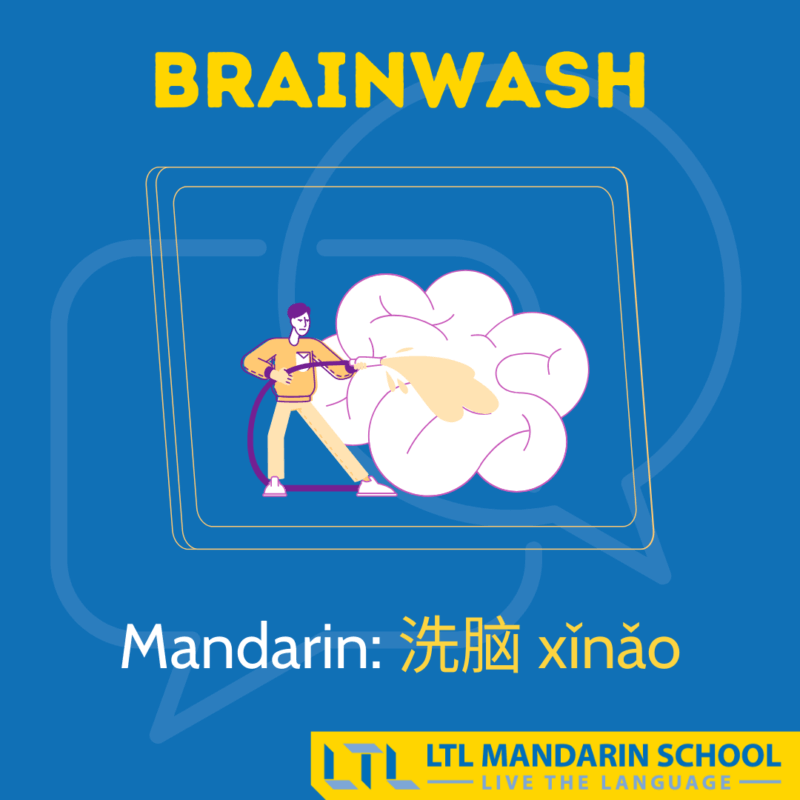
Brainwash
Now this one may surprise you!
Did you know that the term brainwash actually comes from Chinese?
It is a literal translation of the Mandarin for brainwash 洗脑 xǐnǎo which was first used by the People’s Volunteer Army during the Korean War.
This psychological concept first came into the mainstream English language after the Korean War where it was used to describe the attitudes of POWs returning.
Paper Tiger
This is an ancient phrase that was brought into the mainstream English language by Mao Zedong to describe his political enemies.
Paper tiger is another literal translation of the Chinese 纸老虎 zhǐlǎohǔ.
It describes someone or something that appears to be powerful or threatening but then actually isn’t.

Typhoon
Surprised?!
Another word that you might not realise has its origins in Chinese, typhoon comes from the Mandarin 台风 táifēng.
Originally in Chinese this word simply meant “typhoon wind” with 台 tái being the simplified character of 颱 tái which means typhoon.
Coolie
A coolie is a term for a labourer typically of South Asian of East Asian descent which was first used by European traders in the 16th century.
Some claim that this word has its origins in Hindi, however others believe that it comes from the Mandarin 苦力 kǔlì.
This literally means “bitter strength” but has the meaning of “hard labour”.
So which was your favourite? Why not tell us in the comments below.
BONUS | How about we switch it around and teach you some words used in daily life in China, taken from other languages.
Check out our guide to some of the most popular Chinese loanwords. There’s sure to be some surprises on the list you didn’t expect also!
There’s more too. Why not check out our guide to 20+ loanwords in Russian and our favourite Konglish words.
So much to learn! Enjoy and thanks for reading 😎
English Words Borrowed from Chinese | FAQs
What is a loanword?
A loanword is a word adopted from a foreign language with little or no modification.
How many English words originated from Chinese?
There are actually loads of English words that originated from Chinese, according to the Oxford English Dictionary there are over 1,300 English words that have Chinese as the source.
What words are the same in English and Chinese?
There are many words that sound the same or similar in English and Chinese, for example feng shui and yin yang are the same in both languages.
Is ketchup a loan word?
Yes!
Ketchup is a loan word and is originally thought to have potentially come from the Hokkien word kê-tsiap.
What are some Chinese loan words in English?
There are actually tonnes of Chinese loan words in English such as kung fu or wok, according to the Oxford English Dictionary there are over 1,300 English words that have Chinese as the source.
Want more from LTL?
If you wish to hear more from LTL Mandarin School why not join our mailing list?
We give plenty of handy information on learning Chinese, useful apps to learn the language and everything going on at our LTL schools.
Sign up below and become part of our ever-growing community.
BONUS | Learn Chinese with LTL in person. Our student community is growing by the week.


 Hi, my name is Ilaria! I am from Italy and I am a Student Advisor at LTL. Fancy coming to study with us in China? Drop me a message.
Hi, my name is Ilaria! I am from Italy and I am a Student Advisor at LTL. Fancy coming to study with us in China? Drop me a message.

